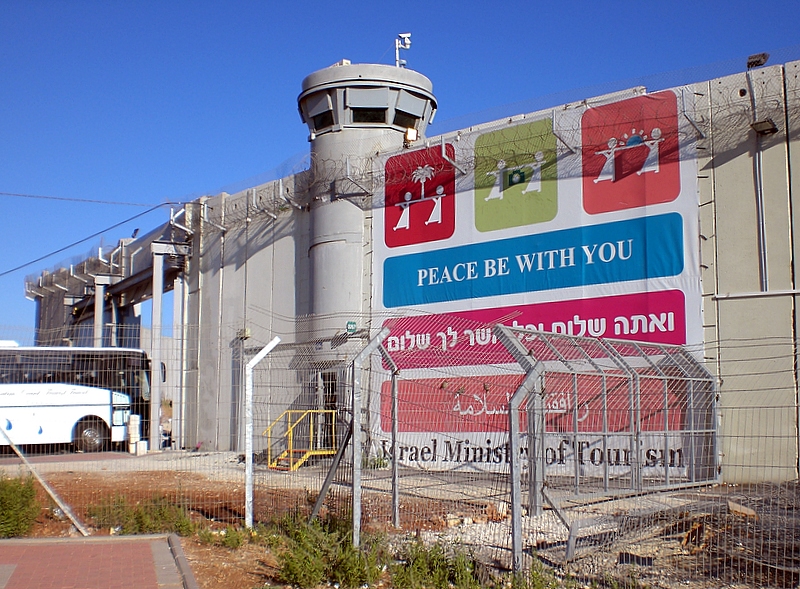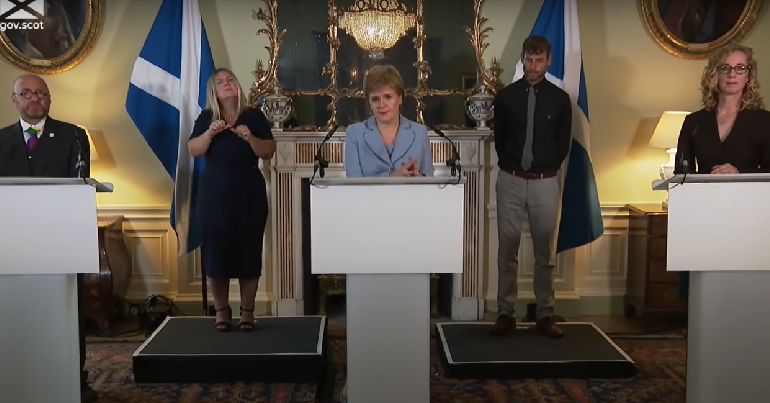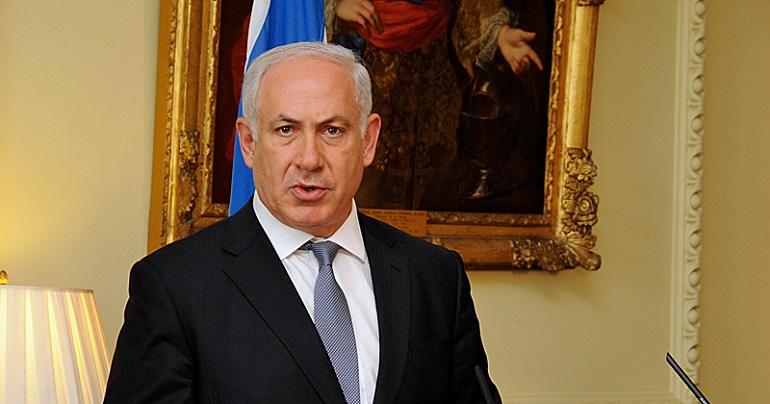BDS is the only way Israel will take any notice

Rebekah Gronowski is a member of Scottish Jews for a Just Peace. Here she responds to Eurig Scandrett’s article “New Scottish Greens policy meets the demands of the Palestinian people“.
A two state solution may have worked if Israel had not, right from the start, begun to annex the land owned by the Palestinians, destroying homes, crops and olive groves which had been in Palestinian families for three-hundred years or more. Apart from destroying the livelihoods of the Palestinian residents, this mass destruction of crops and trees goes directly against the teaching of Torah, a fact which the State of Israel very conveniently ignores. You only have to look at the maps tracing the erosion of Palestinian land between 1947 and now to see exactly how much land has been taken and settled. Some homes have been destroyed, rebuilt and destroyed several times over the years. Israel is intent on driving out the Palestinians from their land, taking from them their religious and (most of all) their civil rights, denying them any means of making a living or growing food for themselves and their families.
Ever since the Nakba Palestinians have seen a long and protracted erosion of their homeland. There is no doubt that Palestine is, and always was, the homeland of the Palestinians. The State of Israel did not exist before 1948 and it was founded by the expulsion of the indigenous people of the land, beginning with the taking of Ramla in May 1948 when Palestinians were forced to surrender at gunpoint.
The Balfour Declaration of 1917 made it very clear that the rights of the non-Jewish residents were to be preserved and not impinged upon in any way. There was no agreement by both sides on this arrangement as the two ideas were in conflict – to the Jews and the Arabs there was no way in which the Jews could be granted a homeland in Palestine whilst preserving the religious and civil rights of the Palestinians.
In 1947 partition was proposed by the United Nations General Assembly into a Jewish and an Arab state with Jerusalem under an international regime. The Jews agreed to this solution but the Arabs did not – from that time the establishment of the State of Israel on Palestinian land was defined as “al-Nakba” – the catastrophe – which is often compared with Ha Shoah, literally translated as “the catastrophe” but mostly known as The Holocaust (Shoah also means “burning”). To the Palestinians al-Nakba was (and still is) as much a disaster to them as Ha Shoah was and is to the Jewish people.
The Balfour declaration, it is worth remembering, stated that the British government viewed “with favour the establishment in Palestine of a national home for the Jewish people … it being clearly understood that nothing shall be done which may prejudice the civil and religious rights of existing non-Jewish communities in Palestine or the rights and political status enjoyed by Jews in any other country.”
If there is to be a peaceful solution there must be mutual respect between the Israelis and the Palestinians. We must not forget the fact that there are Jewish-Arabs and Palestinian Jews as well as Christians in both contexts. When people cry “anti-Semitism” they should NOT forget that both Jews and Arabs are Semitic peoples, they derive from the same Semitic roots! There is too much misappropriation of terminology and this needs to be corrected before any progress can be made.
Many of the Bedouin are Israeli Bedouin and yet they have been expelled from their villages which are within Israel’s borders. How can this be right? The Prawer Plan (The Bill on the Arrangement of Bedouin Settlement in the Negev which was formulated in September 2011) was ill-conceived as well as immoral and yet, despite many protest and petitions against its implementation, it was carried out. The expulsion of the 70,000 Arab-Israeli Bedouins from their homes in Israel, many of which had been there for generations, has been one of the most disgraceful acts perpetrated in recent months.
Eurig’s piece has identified the many complex aspects of the situation in Palestine – most Palestinians and Jews alike just want to see Peace in their land. We tend to see only the bad side of what is happening there – the bombings, attacks, incursions into Palestinian land but what we see rarely are the settlements where Jews and Arabs live peacefully and harmoniously together, working together for a better future. If this can be done on a small scale (which, of course we never hear about) surely it may be done on a larger scale. If this is to happen it can only be done if there is a will to do it by both sides.
Peaceful methods have been tried – when these failed BDS (boycott, divestment and sanctions) was adopted and, I may say, reluctantly on the part of many Jews (myself included) but it seems to be the only way in which Israel will take any notice of the opprobrium with which the rest of the world sees its actions.
Boycotting of academic and artistic activities only proceeded when Israel decided to “market” their artistic tours under the name of “Brand Israel” – that was the mistake on their part and was the final straw for many people who, until then, had hesitated to boycott.
We want Peace, but there cannot be Peace without Justice and the cannot be Justice without Respect for the other people civil, religious and Human Rights. As long as the Human Rights of Palestinians are not observed and upheld, Israel will never be considered as the “best democracy in the Middle East”!
The implications of the “two state solution”, however well-intentioned, cannot work within the terms on which it was originally framed. I am pleased to see the Scottish Green Party leading the way in pursuing the rights of the Palestinian people.




Erratum – in para 10 “Band Israel” should read “Brand Israel” – RG
Thank you for that! Appreciated.
A country’s borders are not necessarily permanent. Countries in Europe that have had border changes include Russia, Poland, Germany, Denmark, Greece, Italy, Finland, France, Albania etc. And that’s just Europe. So what makes Palestine a special case? Why the obsession with Palestine? Don’t expect Israel to withdraw unilaterally, as to do so without a peace agreement is to invite attack from Palestine. Look what happened when Israel withdrew from Gaza. Israel only occupies the West Bank because it was attacked by the previous occupier, Jordan, in 1967. Sure the Palestine is entitled to independence, but it has to earn this by guaranteeing Israel’s right to live in peace. Freedom without peace is as worthless as peace without freedom.
I accept all you say and I know this is a very unequal struggle but I still think we need to condem violence from the Palestinian side too. Those rockets were intended to kill. The fact that Israel has good missile defences does not negate the intention. We should condemn violence on both sides and work to support a peaceful solution
One of the problems, surely is that in the case of most main stream media and our complicit politicians, is that it is virtually ONLY Palestinian violence that is condemned. With the Israeli’s getting a free pass to do as they will. To commit all manner of crimes and killings, with impunity.
When you have a situation as we have here – with the Israeli’s doing what they’re – what they’ve been doing for decades, you’ve created a situation where violence is inevitable. Even if the vast majority of Palestinians are protesting peacefully, some, due to human nature, are going to respond with violence. Condemning this effect is all well and good, but without the addressing the cause, is virtually – for all intents and purposes, pointless. In regards to those rockets, why are they even an issue? Right now there are some extreme factions firing off the odd one … but Hamas have been silent since the of the last massacre (2014). It was the same before that. They had been the only party to have honoured the ceasefire since 2012 (end of the previous massacre). Of course our politicians and our media reported the Israeli version of events (lies) that operation ‘protective edge’ was caused by Hamas firing 1000’s of rockets. Israel, being the innocent party who then needed to defend itself. In fact it was Israel who provoked (to put it mildly) those rockets. It was Israel, that attacked Hamas/Gaza BEFORE Hamas had fired any rockets. It was only after those attacks, that Hamas retaliated. But that’s not the story we were presented with. Far from it. And that sequence of events is the standard model of how things go. It is invariably Israeli aggression that sets off Hamas rocket fire.